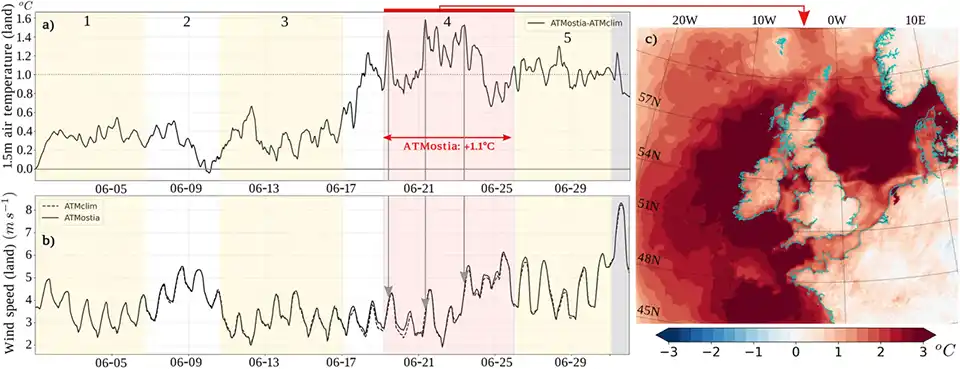
Sea temperatures around the UK have soared to record highs, threatening marine life, damaging fisheries, and raising urgent questions for climate policy
By
In recent years, the waters surrounding the United Kingdom have been experiencing unprecedented warming, with 2024 marking a significant milestone. According to the Met Office, the average sea surface temperatures (SSTs) around the UK have been consistently above historical averages, contributing to a series of marine heatwaves that have profound implications for marine ecosystems and coastal communities.
Record-breaking sea temperatures
Data from the Met Office indicates that the summer of 2023 saw SSTs in UK waters reaching levels up to 5°C above the long-term average. On 19 May the average sea surface temperature reached 12.69ºC in UK waters. Scientists expect 2025 to be one of the hottest on record.
The North Atlantic experienced record-breaking temperatures during spring 2023, with global sea surface temperatures for both April and May 2023 being the highest on record for those months in a series stretching back to 1850.
A recent Met Office-led study published in the Nature Communications Earth & Environment Journal showed that weak winds, strong sunshine and tropical air streams has caused the warmer ocean temperatures around the UK.
Impacts on marine ecosystems
The rise in sea temperatures has led to significant ecological disturbances. Marine heatwaves have been associated with mass mortality events among marine life, including shellfish and fish species vital to the UK’s fishing industry. The National Oceanography Centre reports that these heatwaves can cause widespread die-offs, disrupt breeding cycles, and lead to the proliferation of harmful algal blooms.
Marine heatwaves have led to significant mortality events among shellfish, notably crabs and lobsters, particularly along the northeast coast of England. Elevated sea temperatures combined with low oxygen levels have been implicated in these die-offs.
Seagrass meadows, crucial for carbon sequestration and as habitats for marine species, are also under threat. Elevated temperatures can lead to the degradation of these habitats, undermining efforts to restore and protect them.
Economic and community consequences
The ecological impacts translate into economic challenges, particularly for coastal communities dependent on fishing and tourism. Disruptions in fish populations affect commercial fisheries, while the degradation of marine habitats can deter tourism. The cumulative effect poses a risk to the livelihoods of thousands and necessitates urgent attention.
Monitoring and mitigation efforts
In response to these challenges, the Met Office, in collaboration with the Centre for Environment, Fisheries and Aquaculture Science (Cefas), has enhanced its monitoring capabilities. Utilising satellite data and in-situ observations, they provide detailed SST analyses and forecasts to predict and manage the impacts of marine heatwaves.

Furthermore, there is a growing call for the development of impact-based criteria to define marine heatwaves, similar to those used for land-based heatwaves. Such criteria would aid in the formulation of targeted response strategies to protect marine ecosystems and the communities that rely on them.
Looking ahead
The increasing frequency and intensity of marine heatwaves around the UK underscore the urgent need for comprehensive climate action. Protecting marine ecosystems requires a multifaceted approach, including reducing greenhouse gas emissions, enhancing monitoring systems, and implementing adaptive management strategies.
As the UK navigates the complexities of a warming ocean, the integration of scientific research, policy development, and community engagement will be pivotal in safeguarding the health of its marine environments and the well-being of its coastal populations.





